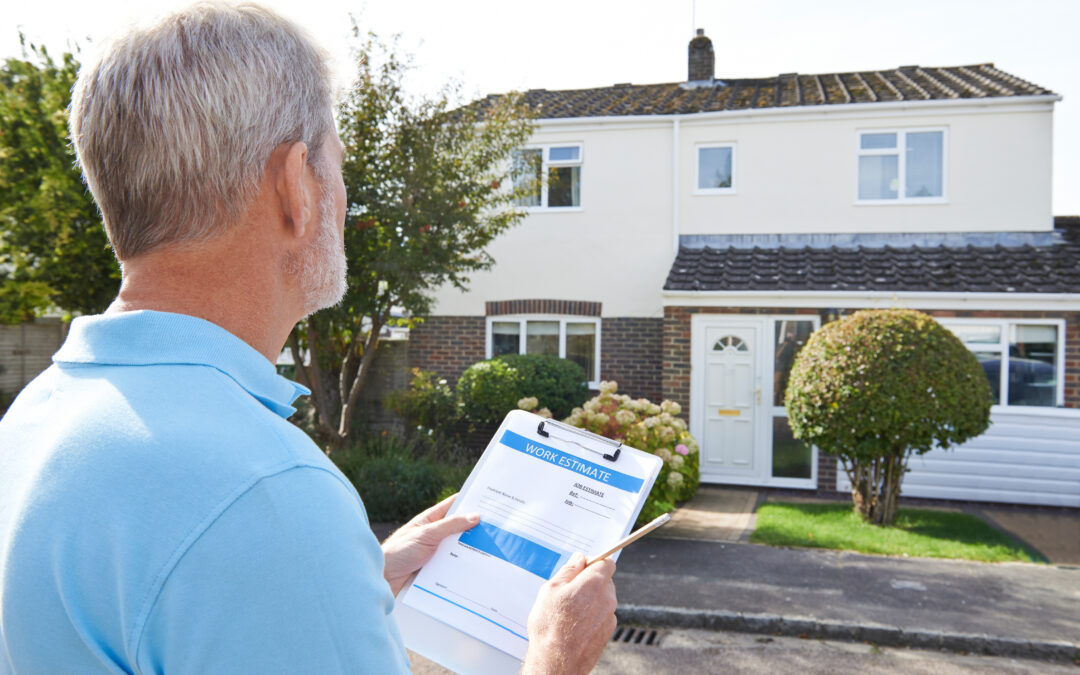Whether you’re facing roof repairs, replacements, or new installations, obtaining estimates from various roofing contractors is essential in making an informed decision. However, deciphering these estimates can be daunting, and it’s crucial to ask the right questions to fully understand what each proposal entails.
In this blog, we’ll show you the best questions to ask when comparing roofing estimates, equipping you with the knowledge to choose the most reliable and suitable roofing solution for your home.
What Should Be Included in a Roofing Estimate?
There are many ways to compare roofing estimates, but we’ll stick to four basic categories. If they are not included in your roofing estimate, you should keep looking until you find an adequate estimate that addresses the following issues.
1. Warranty:
While most asphalt shingles come with a manufacturer’s warranty, you want a roofing contractor that stands behind their work, offering their own warranty covering installation and materials. A superior contractor will usually provide a guarantee similar in length to the shingles’ warranty (in most cases, 25 years). It’s also good to take into account the location of each contractor. The closer to you, the better, in case some repairs need to be tackled in the future.
We explain roofing warranties in-depth in our blog, here.
2. Materials:
The materials section of your roofing estimate is reliant on an itemized estimate. If your roofing contractors don’t send you an itemized estimate, you should ask for one. This will give you a better idea of exactly where your money is going and to what.
Most roofing contractors will include the shingles on the material list, but you’ll also want to ensure they have all supplementary materials, like sealants, additional plywood, and the felt that underlays your roofing shingles on the estimate. Not only does an itemized estimate give you a better idea of what you’ll be paying, but it also gives you an idea of what kind of quality you’ll be getting.
3. Labor:
The labor section of your roofing estimate is critical. It’s a common misconception that the price of labor is likely to be the same across the board, a relatively fixed hourly wage, but this is not always the case. Most of the time, a contractor who charges more for labor has more skilled workers. Many people shy away from estimates with high labor costs, but typically higher wages mean more experienced laborers. And if you want a high-quality roof, you want skilled workers.
4. Incidentals:
In the incidentals portion of your roofing estimate, a contractor may attempt to hide certain fees. “Incidental” is the blanket industry term for cleanup and waste disposal services. If you don’t see a spot for incidentals on one or more of your estimates, you should ask a few questions.
What Questions Should Be Asked About Roofing Estimates?
Now that you know what you’re comparing, you probably have a better idea of who gave you the best roofing estimate for what you’re looking for. Before you put pen to paper, make sure you ask your potential top choice a few of these questions:
- Which types of insurance do you have?
The contractor you choose should have insurance in at least two forms. The first is workers’ compensation. That means that if any of their workers are injured while working on your roof, the contractor is responsible for paying those medical bills, not you.
The second type of insurance is general liability. This protects you if something happens to your home while the contractors are working on your roof. Say a worker accidentally crashes through your roof – as long as the contractor has liability insurance, none of the repairs will come out of your pocket.
- Are you licensed?
Ask about their license and ask to see it. Ensure they’re licensed to work in your state and double-check that their license is current. Each state has different code requirements, so your roofer must be approved for the state in which you live.
- How long have you been in the business?
This is a good way to make a decision if you have two or three similar roofing estimates and you’re unsure of who to choose. Asking your roofer how long they’ve been in the business will give you some insight into the quality of work they do. Most roofing contractors who have been around for a while have proven themselves to customers time and time again and know how to put together a quality roof.
- Will you obtain the proper permits?
If your roofing contractor doesn’t say anything about obtaining a permit, you must ask. It should be included in the roofing estimate; if it isn’t, that’s a major red flag. You want the contractor to obtain the permit themselves, so the responsibility falls on them if they do a poor job. If you get the building permit, and your roofing contractor and his workers install a roof that isn’t up to code, you’ll pay all the fees and fines yourself.
- Will you remove my old roof?
You may have already addressed this before you even got to the estimate phase of choosing a contractor, but it’s too important to omit. You should ask your contractor if they’ll remove your old roof and how much it will cost. While it’s cheaper for them to re-roof on top of your old roof, that’s not always the best choice for the life of your home. A good contractor should tell you they can remove the old roof and start from scratch.
Werner Roofing: Roofing Professionals You Can Trust
Once you’ve received your roofing estimate and asked these questions, you should be able to determine a good estimate from a bad one. Then you can decide which estimate and contractor suits your home, and you can hammer out the details from there.
At Werner Roofing, we know how important this choice can be for you and your family. If you still have more questions, feel free to check out our other blogs about Choosing a Contractor or Determining the Cost of a New Roof.
If you have more questions about roofing estimates or are looking for an estimate for your home, call the experts at Werner Roofing. With more than 30 years of experience in the West Michigan area, we’d love to be your first choice in roofing! Give us a call at 616-844-5382 or request your free estimate online today!


